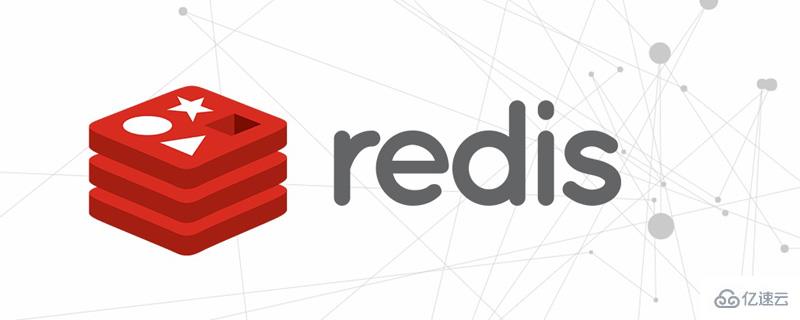Recently looking at the load balancing of nginx, I found that in order to solve the session problem of nginx, there are two methods, namely ip_hash and url_hash. ip_hash maintains the session based on ip, while url_hash is based on url address. The advantage of url_hash is that it can improve The efficiency of the back-end cache server, such as improving the efficiency of Squid, but the disadvantage is that when the back-end server goes down, url_hash will not automatically jump to other cache servers, but will return a 503 error to the user. What I want to ask is , does ip_hash solve this problem, will it jump to other machines, or will it still return a 503 error? What is the difference between ip_hash and url_hash, and can nginx solve both the session problem and the backend problem? Server health check issue. I remember that Squid can perform health checks and maintain sessions.
Or you can use memcached to maintain the session and achieve session sharing without worrying about the session being dropped
Copyright statement: This article is an original article by the blogger and may not be reproduced without the permission of the blogger.
The above introduces the difference between ip_hash and url_hash in nginx, including the relevant content. I hope it will be helpful to friends who are interested in PHP tutorials.
 SpringBoot Session怎么设置会话超时May 15, 2023 pm 02:37 PM
SpringBoot Session怎么设置会话超时May 15, 2023 pm 02:37 PM问题发现springboot项目生产session-out超时问题,描述下问题:在测试环境通过改动application.yaml配置session-out,经过设置不同时间验证session-out配置生效,于是就直接设置了过期时间为8小时发布到了生产环境。然而中午接到客户反应项目过期时间设置较短,半小时不操作就会话过期需要反复登陆。解决处理开发环境:springboot项目内置Tomcat,所以项目中application.yaml配置session-out是生效的。生产环境:生产环境发布是
 php session刷新后没有了怎么办Jan 18, 2023 pm 01:39 PM
php session刷新后没有了怎么办Jan 18, 2023 pm 01:39 PMphp session刷新后没有了的解决办法:1、通过“session_start();”开启session;2、把所有的公共配置写在一个php文件内;3、变量名不能和数组下标相同;4、在phpinfo里面查看session数据的存储路径,并查看该文件目录下的sessio是否保存成功即可。
 session php默认失效时间是多少Nov 01, 2022 am 09:14 AM
session php默认失效时间是多少Nov 01, 2022 am 09:14 AMsession php默认失效时间是1440秒,也就是24分钟,表示客户端超过24分钟没有刷新,当前session就会失效;如果用户关闭了浏览器,会话就会结束,Session就不存在了。
 php如何实现Redis的Hash操作May 30, 2023 am 08:58 AM
php如何实现Redis的Hash操作May 30, 2023 am 08:58 AMHash操作//为hash表中的字段赋值。成功返回1,失败返回0。若hash表不存在会先创建表再赋值,若字段已存在会覆盖旧值。$ret=$redis->hSet('user','realname','jetwu');//获取hash表中指定字段的值。若hash表不存在则返回false。$ret=$redis->hGet('user','rea
 Springboot2 session设置超时时间无效怎么解决May 22, 2023 pm 01:49 PM
Springboot2 session设置超时时间无效怎么解决May 22, 2023 pm 01:49 PM问题:今天项目中遇到了一个设置时间超时的问题,按SpringBoot2的application.properties更改一直不生效。解决方案:server.*属性用于控制SpringBoot使用的嵌入式容器。SpringBoot将使用ServletWebServerFactory实例之一创建servlet容器的实例。这些类使用server.*属性来配置受控的servlet容器(tomcat,jetty等)。当应用程序作为war文件部署到Tomcat实例时,server.*属性不适用。它们不适用,
 Redis的共享session应用如何实现短信登录Jun 03, 2023 pm 03:11 PM
Redis的共享session应用如何实现短信登录Jun 03, 2023 pm 03:11 PM1.基于session实现短信登录1.1短信登录流程图1.2实现发送短信验证码前端请求说明:说明请求方式POST请求路径/user/code请求参数phone(电话号码)返回值无后端接口实现:@Slf4j@ServicepublicclassUserServiceImplextendsServiceImplimplementsIUserService{@OverridepublicResultsendCode(Stringphone,HttpSessionsession){//1.校验手机号if
 PHP如何在多个文件中正确地读取和写入Session数据Mar 23, 2023 am 11:12 AM
PHP如何在多个文件中正确地读取和写入Session数据Mar 23, 2023 am 11:12 AM当您在使用PHP会话(Session)时,有时会发现Session在一个文件中可以正常读取,但在另一个文件中却无法读取。这可能会让您感到困惑,因为会话数据应该可以在整个应用程序中共享。本文将解释如何在多个文件中正确地读取和写入PHP会话数据。
 JavaScript和PHP的cookie之间有哪些区别?Sep 02, 2023 pm 12:29 PM
JavaScript和PHP的cookie之间有哪些区别?Sep 02, 2023 pm 12:29 PMJavaScriptCookie使用JavaScriptcookie是记住和跟踪偏好、购买、佣金和其他信息的最有效方法。更好的访问者体验或网站统计所需的信息。PHPCookieCookie是存储在客户端计算机上的文本文件并保留它们用于跟踪目的。PHP透明地支持HTTPcookie。JavaScriptcookie如何工作?您的服务器将一些数据发送到访问者的浏览器cookie的形式。浏览器可以接受cookie。如果存在,它将作为纯文本记录存储在访问者的硬盘上。现在,当访问者到达站点上的另一个页面时


Hot AI Tools

Undresser.AI Undress
AI-powered app for creating realistic nude photos

AI Clothes Remover
Online AI tool for removing clothes from photos.

Undress AI Tool
Undress images for free

Clothoff.io
AI clothes remover

AI Hentai Generator
Generate AI Hentai for free.

Hot Article

Hot Tools

EditPlus Chinese cracked version
Small size, syntax highlighting, does not support code prompt function

Dreamweaver CS6
Visual web development tools

WebStorm Mac version
Useful JavaScript development tools

SublimeText3 Mac version
God-level code editing software (SublimeText3)

DVWA
Damn Vulnerable Web App (DVWA) is a PHP/MySQL web application that is very vulnerable. Its main goals are to be an aid for security professionals to test their skills and tools in a legal environment, to help web developers better understand the process of securing web applications, and to help teachers/students teach/learn in a classroom environment Web application security. The goal of DVWA is to practice some of the most common web vulnerabilities through a simple and straightforward interface, with varying degrees of difficulty. Please note that this software






